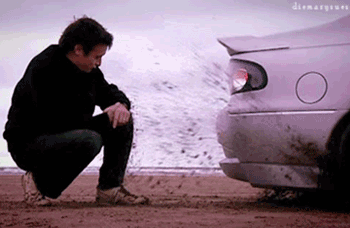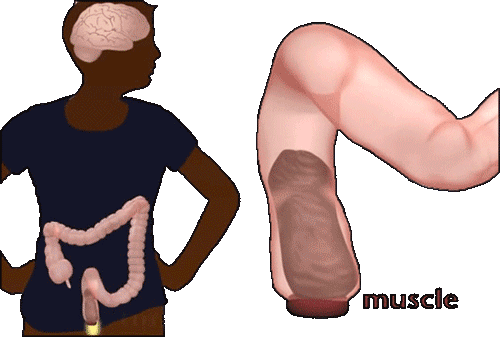
If there’s any fact in this world to humble even the most Kanye West among us, it’s the fact that we all shit.

It was probably the first thing you did upon exiting your mother’s womb. It will probably be the last thing you ever do.
*Let that sink in (or out) for a minute*
If you’re a drinker, you’ll be well acquainted with a very special breed of bowel movement: the sheer terror and/or excitement that is the After-Grog Bog.
I remember my first encounter with the AGB quite clearly, actually.
It was the summer of ’03. My dad, Stephen, had been on a boat all day with his mates, drinking piss because #straya. The next morning, my innocent-eyed, eight-year-old self wandered out of my bedroom and towards the bathroom.
The sound of a thousand dying Chewbaccas was radiating from the tiled room. I tip-toed around the corner, only to be startled by the sight and sound of my father hunched over the porcelain throne.
What happened next shocked me to my very core.
He violently chundered into the bowl whilst simultaneously shitting inside his underpants.

Yes, it was possibly the rankest, most fucked-up-shit I have ever witnessed, to this very day. But, the experience left me with an insatiable question:
What is the *science* behind the After-Grog Bog?
We spoke with a seasoned Gastroenterologist and general all ’round sick guy, Dr Jeremy Ryan, to shed some light on what’s going on inside your bod after grog. “The AGB is an interesting topic, not one we often get called upon to discuss,” he begins. But an important topic, nonetheless.
First of all, it’s obviously the product of a hangover**.

**But it’s certainly spurred on by the consumption of greasy kebabs.
A hangover usually begins about eight to sixteen hours after you’ve put down the last bev (so approximately the exact moment every bad life choice you’ve ever made smacks you right in the feels).
“The hangover is technically caused by a toxins,” he tells us. A blend of dehydration, hormonal alterations, the release of inflammatory molecules, electrolyte imbalances and blood sugar swings.
When pissed as a fart, the heart works harder (particularly if you’re Renata Bliss-ing) – but the brain slows down.

This makes it hard for your cerebral matter to secrete antidiuretic hormone (ADH), a molecule that helps the body retain water. As this ADH production shuts down, water starts pouring out your kidney. “That’s why people are always rushing for the bathroom,” says Dr Ryan.

You.
Feeling dehydrated, you’ll probably order another Carlton Draught, because you’re a genius. A vicious cycle of dehydration and trips to the pisstrough lead to more electrolyte imbalances.
The real clincher in this process, though, is the production of a chemical called acetaldehyde. At high concentrations, it’ll produce cold sweats, nausea and vomiting. The alterations in serotonin and histamine cause by booze account for the flushing and diarrhoea we associate with your classic AGB.
“In the shorter term, alcohol inhibits the bowels ability to absorb water. That’s the same affect that can occur when people have food poisoning – it’s the same thing, the path is inflamed. So instead of producing a relatively well-formed stool, it can lead to diarrhoea.”

The ethanol in alcohol revs up your digestive process, too (like a fun, enjoyable laxative) which is why you have that primal urge to shit everywhere as soon as you wake up. This speed up of digestion means there’s less time for the colon to absorb H20.

“Time to poop,” said everyone, ever.
But I drank malk before I drank alcohol, will that lessen the blow?
“Look… No, drinking milk is probably not a good idea,” Dr Ryan says. Truer words were never said.

You knew it was a bad choice.
“Though, eating when you’re drinking slows down the amount you drink, while also slowing down the absorption of alcohol.”
How long after drinking do the AGB effects last?
“It’s a bit hard to predict,” Dr Ryan begins, alluding to the mysterious ways of the AGB. “But it probably all relates to the falling rate of blood alcohol. The effects are most prominent when your blood alcohol is highest. By the time your blood alcohol levels gets back down to zero, you’ll have really no effect. Until then, you’ll be having symptoms going into the next afternoon.”
And the best way to avoid a truly heinous crime scene in the share house bathroom?
Water.
“The take home message would be to alternate between water and alcohol on your night out,” so as to “lessen the overwhelm your body’s normal way of dealing with alcohol.” …AKA lessen the blow out.
“To the other sort of folk remedies – Berocca, etc… I don’t think there is great evidence that they work, apart from the fact that you’re having more fluids. The fluids is the biggest beneficial aspect you can have on a hangover. so that’s why, when you go home drunk, it’s a good idea to have a big glass of water before bed.” He concludes.

In a moment of investigative journalism, I had a wine during our Friday team lunch. Low and behold, I just took a toilet break.

BRB.
Back. Slipped right out like a wet fish.
Of course, there are still some questions science simply cannot answer:

We wish, random Yahoo Answers friend, we wish.



